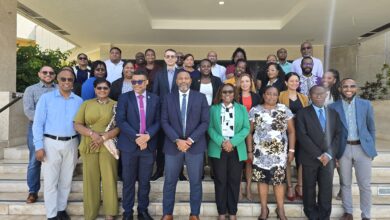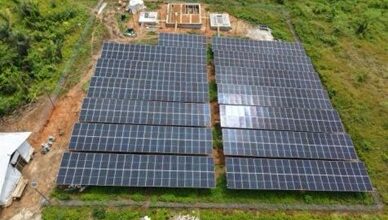CHRIST CHURCH, BARBADOS – A ‘CARICOM Meeting on Smaller Economies Issues in the FTAA & Preparatory Meeting for the CARICOM Sub-regional Round Table’ was held in Barbados, June 7 to 8. The Caribbean Regional Negotiating Machinery (RNM) provided an update to the meeting on the status of Free Trade Area of the Americas (FTAA) talks and formal/informal discussions at the level of the Trade Negotiations Committee (TNC) regarding the scope and structure of negotiations, pursuant to the Miami Ministerial mandates. The meeting considered the Miami Ministerial mandates in the context of the Consultative Group on Smaller Economies (CGSE). Participants discussed the mandates, with a view to developing CARICOM proposals for submission to the CGSE. The meeting also served as a preparatory forum for a ‘CARICOM Sub-regional Round Table’ meeting with donors. In this regard, it sought to: 1) Advance an understanding of what are the common needs among CARICOM countries in relation to the FTAA Hemispheric Cooperation Programme (HCP); and, 2) Take stock of National HCP Strategies and identify priority areas for assistance by donors. In this regard, Member State representatives delivered presentations of national strategies and priorities in which assistance is required in each of the three areas of the HCP; namely: i) preparing for negotiations; ii) implementation of trade commitments; and, iii) adaptation to integration. The expectation is that identified common needs across national strategies will be presented to donors at a ‘CARICOM Sub-regional Round Table’, in the coming weeks. The convening of a sub-regional round table follows an initial dialogue between potential donors and countries seeking assistance for trade capacity building for the implementation of the HCP, that took place in Washington, DC, October 14 to 15, 2003. The purpose of the initial meeting with donors was to engage FTAA countries that have identified trade-related capacity needs in dialogue with countries, regional and international institutions with the potential to assist in addressing the needs expressed. Presentations of each country’s ‘Trade Capacity Building Strategies’ were made and priority needs brought into focus by countries and sub-regions, followed by presentations from potential donors. CARICOM countries expressed their keen interest in cooperation efforts aimed at integrating goals for development and trade in areas identified in their ‘Trade Capacity Building Strategies’. They also expressed their intention to meet as a region and to reconvene with donors to put into motion activities to realize trade capacity building goals. The HCP emerged out of the FTAA Quito Ministerial, in Ecuador, November 2002. It represents an attempt to ensure the meaningful participation of smaller and less developed economies in, and to increase their ability to capitalize on the opportunities of, trade liberalization and regional integration. During the initial phase of the HCP, countries – with the support of the Tripartite Committee (ECLAC, IDB, and the OAS) – produced National Trade Capacity Building Strategies, which provide an economic overview of each country, including how trade liberalization relates to its long-term development objectives. Each Strategy also describes the existing trade-related institutional framework, and identifies specific needs for participation in FTAA negotiations, implementation of the FTAA agreement and adaptation to trade liberalization and regional integration. CARICOM Member States represented at the meeting this week were: Antigua & Barbuda, Belize, Dominica, Grenada, Haiti, Jamaica, St. Kitts & Nevis, St. Lucia, St. Vincent & the Grenadines, Suriname, and Trinidad & Tobago. In addition to the RNM, the CARICOM and Organisation of Eastern Caribbean States (OECS) Secretariats were also represented. The meeting was organized by the RNM. The RNM's Director of Technical Cooperation & Partnerships, Dr. Deryck Brown, chaired the meeting.
BarbadosCARICOMFree Trade Area of the Americas (FTAA) SecretariatPress Releases





